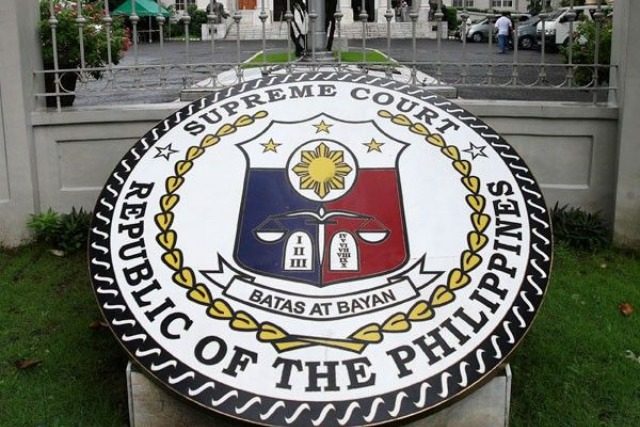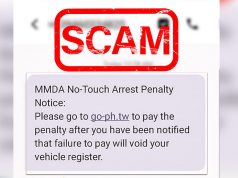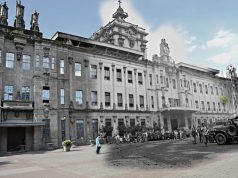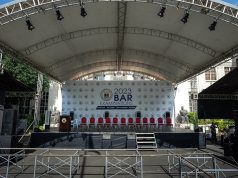“They can keep their review files. But, they are NOT ALLOWED to connect to the internet.”
Associate Justice Marvic Leonen emphasized this policy following the relaxed rules of the Supreme Court regarding laptop use during the coming 2020/2021 Bar Examinations.
Leonen, also the Bar chairperson, quote-retweeted the post from the Supreme Court’s Twitter about the revised rules on laptops during the examinations proper.
Bar examinees can use their laptops to review in between examinations at the local testing centers. They can keep their review files. But, they are NOT ALLOWED to connect to the internet. For your information and strictest compliance.#BestBarEver2020_21 https://t.co/fdpPGVNyP7
— Marvic Leonen — maroon check (@marvicleonen) January 25, 2022
He stated that laptops can only be used only in-between exams and offline.
“Bar examinees can use their laptops to review in between examinations at the local testing centers. They can keep their review files,” Leonen said.
“But, they are NOT ALLOWED to connect to the internet. For your information and strictest compliance,” he added.
Prior to this, examinees were prohibited from using their laptops for last-minute reviews.
Instead, SC advised them to download and organize their law-related materials to other external devices.
The licensure test will be conducted via the “Bar Personalized Login Unified System” (BAR PLUS), the first-ever digital and localized platform for future Philippine lawyers.
It will be conducted on February 4 and 6, 2022.
READ: SC’s Bar exams platform allows examinees to decide preferred gender pronouns
The new bar bulletin
Under the revised rules indicated on Bar Bulletin No. 30, series of 2021, examinees can now keep their review materials in their laptops.
“Examinees are now allowed to keep reviewers in their laptops, which should always be saved in their local folders and not downloadable from their clouds,” the revised rules read.
“Once done with the security and health checks, examinees may open their laptops to access their files for any last-minute studying. Examinees may also review their own files during lunch breaks,” it added.
Amid the relaxed rules, the SC advised Bar examinees to be responsible for their laptops. Bringing of other gadgets such as tablets and iPads is still not allowed.
“The Supreme Court shall not be liable should they spill anything on their laptops or do any damage that might render the laptops unusable for the succeeding exams. Examinees shall not be allowed to avail of the back-up computers should such a situation arise,” it said.
Bar candidates shall close their laptops and files 30 minutes before the first bell at 7:30 a.m. and 1:30 p.m.
No to cheating
The SC strongly advised examinees against any form of cheating.
Attempting to access the internet and social media platforms during breaks and inside the testing center will be considered cheating.
“Moreover, unless authorized, examinees are still prohibited from connecting to the internet at all times. It will only ever be accessed inside the testing room, at the proctors’ signal, for downloading questionnaires and uploading answer files,” the bulletin said.
“Attempting to connect to the internet while inside the testing premises of the local testing center, other than to download the examination file and to submit the answer file, shall be considered cheating,” it added.
The High court also said that the policy against talking to other examinees still stands.
This include “sharing their computer screens or computer files.”
Physical distancing measures will also be strictly reinforced.
“No examinee should be less than two meters from any other human being. Silence and physical distancing will be strictly reinforced,” it said.










